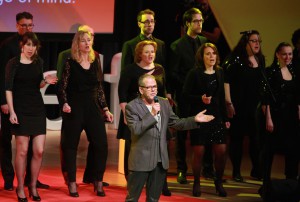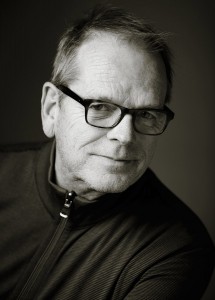Speaker TEDxDelft in the spotlight!
Arjen Kamphuis worked for IBM as IT-architect in the ’90’s. From 2002 to 2010 he advised several European countries on IT-strategy, opensource software & open standards. Since 2006 he helps to secure information systems of companies, government and NGO’s. His work ranges from regular security-awareness to countering espionage against companies, journalists, lawyers and activists. Arjen is involved with the global hacker-community and works with (former)employees of spy agencies and other professionals who work at the front of critical infrastructure protection. Arjen is now Tech & Infosec Director at Pretty Good Knowledge – the Brunel datascience company.
Arjen’s talk will be about the following: From governments to health-care to basic food availability, our lives depend on networked computers functioning all the time.
Thanks to Edward Snowden we know most of our current IT-systems are insecure beyond repair. This insecurity is becoming an existential threat to highly automated and networked societies. There is a way out of this but it requires a different way of thinking about IT than what got us here.
Speaker TEDxDelft in the spotlight!
Wessel van Beerendonk is architect and co-founder of Studio RAP. Studio RAP was founded in 2015 and is an award-winning architectural design and manufacturing studio. In the RAP’s design process, innovative design techniques are used after which in-house these designs are produced with the help of industrial robotic arms. Using digital manufacturing, especially robot-controlled production methods, RAP assumes the role of digital architect. The RAP designs are characterized by expressive unique forms, which are sustainably produced, assembled or unassembled, by industrial robotic arms. Wessel will be talking about moving towards a new architectural paradigm.
Host in the spotlight!
Amber Roner creates space for people to tell their own inspiring stories, on screen, on air and on stage. She is not only a video specialist at NN Group, she also works as a content creative, freelance journalist and video director. In the past several years Amber has become a recognizable voice on air, as host of a weekly Art & Culture show on AmsterdamFM and as a festival reporter for KX Radio. Off the air she’s been the MC on podia at the Amsterdam Uitmarkt and the Amsterdam Pop Prize. This is her first time hosting TEDxDelft.
Speaker TEDxDelft in the spotlight!
Dr. Mata Haggis-Burridge is Professor of Creative and Entertainment Games at NHTV: Breda University of Applied Sciences, where he has worked since 2010. He completed his PhD on Cyberculture in 2006. Mata is an award winning video game developer, as well as researching the social implications of national and international policies regarding video games. His work frequently involves confronting how problematic outcomes emerge from complex systems, and trying to find new paths to better solutions. Mata’s talk is about how Artificial Intelligences can affect ourlives in many strange ways.
Speaker TEDxDelft in the spotlight!
Laura Klauss is a former student of the Delft University of Technology, where she studied Industrial Design Engineering. During her graduation Laura specialized predominantly in the technical aspects of product design and production processes. In 2012 she was co-founder of Better Future Factory and the iconic start-ups Perpectual Plastic and Refil. Her work was rewarded in 2016 by winning the public vote for the prestigious Dutch Engineer of the Year Award. Laura’s talk is about creating tangible solutions that make waste valuable.
Jonathan Schoenmaker: a 20 year old Dutch physics student at the TU Delft and winner of the TEDx Delft Award. Jonathan’s talk is about his experience of suffering years of depression and the steps one can actually take to try and help people with this serious disease
Vreneli Stadelmaier, a performer, writer, careercoach and an entrepreneur for 20 years.
She is the Dutch expert on the impostor phenomenon (the fear of beiing found out) and how it’s holding back. Vreneli was rewarded by the Dutch government with an award for women emancipation. Her goal in life is more women at the top.
John Sadowsky is is a global speaker, writer, leadership coach and business advisor, with more than 20 years of experience across five continents. One of his major goals is to have a deep impact on everyone he works and lives with, and to inspire others to do the same. In his keynotes and seminars, John speaks about how his narrative-based method can transform people, groups, brands or organizations.
In his career John discovered that most people tend to underestimate the influence that they have. In his talk, John shows you how effective leaders use their life stories to impact their world and how we can all learn to do it
John Sadowsky will be at TEDxDelft event March 22nd! Don’t miss his inspiring talk
TEDx Speaker in the spotlight!
Peter Joosten is biohacker and futurist. In his talk at the TEDxDelft event on March 22nd, Peter will reveal the lessons he learned from doing an extensive amount of personal experiments to create more wellbeing.
‘All you need is a change of mind’
Inspiring memories to 2015 TEDxDelft speaker Kor van Velzen who passed away last week.
https://m.youtube.com/watch?feature=youtu.be&v=k3XkxNx-Ljg
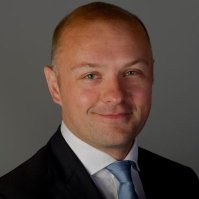 “Our freedom feels a bit self-evident,” Boris van der Ham, humanist and writer, says. Though to obtain this freedom people had to fight. There are places in the world where people fight for this freedom and they deserve our support. But who exactly are they?
“Our freedom feels a bit self-evident,” Boris van der Ham, humanist and writer, says. Though to obtain this freedom people had to fight. There are places in the world where people fight for this freedom and they deserve our support. But who exactly are they?
Van der Ham was born in Amsterdam, where he would later study history. He switched to the Maastricht Academy of Dramatic Arts, after which he worked as an actor at various theatre groups. But the appeal of politics was stronger, after being the president of the youth section of D66, a Dutch liberal democrat party. He worked as a parliamentary assistant for both the European and Dutch parliament and was elected several times as a a full-fledged member of Dutch parliament, where he stayed for ten years. At present, Van der Ham is a writer and is chairing various organisations, such as the Dutch Humanist Association. Last year he made the documentary ‘Among non-believers’.
“In parts of the world the fight for freedom is still ongoing,” van der Ham explains. There are people who think differently from what is conventional where they live. It is a cause Van der Ham has been closely following and involved with. “Because they think differently from the main religious or ideological viewpoint their lives are threatened, both socially and judicially.”
Over the past couple of years, Van der Ham has been working more and more on freedom thinkers. “It is fundamental for a peaceful society that the right that one can be different is acknowledged and respected.” For his talk, Van der Ham will discuss what he calls ‘non-believers’. “It is an increasingly larger group in the world,” he says. “In one way or another everyone is a ‘non-believer’, regardless of whether one is religious or atheist.” But then the question remains: who or what is a non-believer, and what do they do?
Curious to learn how Boris van der Ham has come to redefine non-believers? Then buy your tickets now, and come join us on Friday 15 April to celebrate the universal genius.
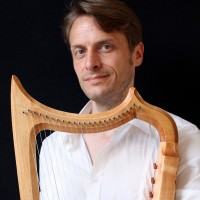 “All of my life I have been a generalist rather than a specialist,” said Daan Verlaan, music artist, “But it took me up until my time at university to realize that.” One of the missions he has embarked on is “to prove that medieval music is just as interesting as any music”. Nonetheless, he hadn’t got in touch with it before he started working in Belgium. “At Dutch conservatories, there is generally little interest in music from before 1500,” he said.
“All of my life I have been a generalist rather than a specialist,” said Daan Verlaan, music artist, “But it took me up until my time at university to realize that.” One of the missions he has embarked on is “to prove that medieval music is just as interesting as any music”. Nonetheless, he hadn’t got in touch with it before he started working in Belgium. “At Dutch conservatories, there is generally little interest in music from before 1500,” he said.
After high school, Verlaan started his Greek and Latin studies at Leiden University. Even during his graduation on Greek tragedy, his generalistic nature resulted in linking different levels within it to each other rather than focusing on one specific aspect. “During my master’s studies I got more and more into music, especially composing,” he said. “That’s why I started with an additional bachelor’s degree in contemporary classical composition at Codarts in Rotterdam.” Following his second graduation Verlaan decided to make a career out of making music. As a choir singer, soloist and harp player, he performed different genres in both the Netherlands and Belgium. Four years ago, he became a guest teacher at the Brussels Harp Centre.
In addition to being a performer, Verlaan was also a tour guide at the Boerhaave Museum for the history of science and medicine for more than a decade. “Da Vinci combined both science and art, always looking for the essence and the beauty of things,” he said When being asked why he thinks he got invited to the TEDx stage, he hesitates: “Mainly because of my way of thinking at the meta level, being a musician as well as an academic.”
With two diplomas to his name Verlaan could have pursued a PhD, but decided to compose music, for which he was awarded on multiple occasions. “But after [composing for] some time, I wondered: ‘What do I really have to say?’,” he said, after which he focussed on playing rather than writing new music. It seems to him that people consider art as a consumer good rather than a way of expressing something universal with the artists acting as a conduit. “But artists are not only ‘beautifiers’, music is not solely aimed at alleviating.” One of the reasons why he also talks in-between songs during his performances is to emphasize this. “That even holds true for pop music!”
Do you want to know why? Then buy your tickets now, join us on Friday 15 April and come celebrate the universal genius.
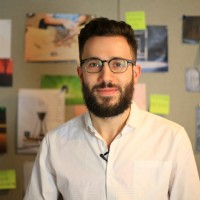 “I have always been interested in confidence, to me it seems to be some sort of secret ingredient.” To Rowland Manthorpe, journalist, confidence is something which has fascinated him for many years now. Through personal experience he has created his own unique understanding of confidence.
“I have always been interested in confidence, to me it seems to be some sort of secret ingredient.” To Rowland Manthorpe, journalist, confidence is something which has fascinated him for many years now. Through personal experience he has created his own unique understanding of confidence.
Manthorpe studied at the University of Cambridge, where he obtained a Bachelor of Arts in History. He then went on to the London School of Economics, and finished with a Master of Science in Political Theory. Upon finishing his master’s he became a freelance journalist, writing for a variety of newspapers. After several years of freelancing he became involved with a consultancy, as a writer and op-ed editor. In the years since, he has become an associate editor for a well-known tech magazine, founder of the Think Tank review, and has co-written a book together with his partner Kirstin Smith to be published later this year.
“Confidence is like a mysterious force that can do almost anything for you, make anything better,” Manthorpe said. Confidence is a concept that has fascinated him since his time at university. During this time there was a period where he had lost his confidence, and it was because of this that he got thinking. “You notice things more when they are gone, and how crucial they can be,” he said of this period in his life. For Manthorpe losing confidence was what opened his eyes to this, and made him think of this topic, and how it could be perceived.
A major influence for Manthorpe that shaped his views on confidence was well known philosopher Friedrich Nietzsche. “The more and more I read of Nietzsche, the more I started to realise what he was actually talking about was confidence,” he explained. Nietzsche wrote about self-expression and creativity, about the forces you feel. “These beliefs are commonplace nowadays, but they were not during Nietzsche’s time,” Manthorpe said. Many self-help books also focus on this positivism, but ignore the darker elements of his theories. “Aiming at confidence as a goal is seriously flawed, we create a life which is not necessarily the one we want.” Manthorpe, heavily influenced by this, came to his own conclusion, one which he is anxious to share.
Are you curious to hear Manthorpe’s philosophy on confidence? Then buy your tickets now, join us on Friday 15 April and come celebrate the universal genius.
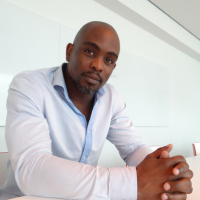 “The creative industry is the only industry that does not require resources to create value,” said Kevin de Randamie, also known as Blaxtar, general manager at Braenworks. And yet the perceived economic value of the top 20 {95388bbb2e9df0f2b3d26445fc24fe82185b1b567dbb094bc3a45074083d0a2b} of performing artists seems exaggerated. While that of the remaining 80 {95388bbb2e9df0f2b3d26445fc24fe82185b1b567dbb094bc3a45074083d0a2b} is largely discounted, discredited or ignored.
“The creative industry is the only industry that does not require resources to create value,” said Kevin de Randamie, also known as Blaxtar, general manager at Braenworks. And yet the perceived economic value of the top 20 {95388bbb2e9df0f2b3d26445fc24fe82185b1b567dbb094bc3a45074083d0a2b} of performing artists seems exaggerated. While that of the remaining 80 {95388bbb2e9df0f2b3d26445fc24fe82185b1b567dbb094bc3a45074083d0a2b} is largely discounted, discredited or ignored.
De Randamie’s big passion has always been music, and he started to make music early on. He went on to work at various accounting jobs at different companies, but his passion for music remained. Using the money he made from his accounting jobs, he founded a company aimed at promoting artists who had a positive but critical message on societal issues. At the same time he started a non-profit organisation which brings together people and poets, in order to promote word craft disciplines. Since 2014 he also works as general manager at Braenworks.
During his time working in the creative industry, De Randamie has seen and experienced many things which have shaped his vision on the creative industry as a whole. “I was doing well, releasing my own music as well as that of others,” he recounted. Until 2010, when the government announced cutbacks to culture. “I took a big dive, I was registered as a sole trader and thus privately responsible and accountable.” It even went as far as having to sell equipment just to make ends meet. “Revenue was low and profits were marginal despite having decent success.” Times had become very tough for De Randamie. But what intrigued him most of all was how companies who made even no profit could be sold for tremendous amounts of money. If they could, then what was so different about the creative industry?
De Randamie went on a search to find out why. “The creative industry works the same way similarly all across the globe,” he said. “Fashion, movies, music, they are all exploited the same way.” Yet his search was not as easy as that, since there are no models to determine value for creative companies. But a realisation came in the end. “I realised that the most valuable item, creativity, could not be sold.” Armed with these new insights De Randamie set up new initiatives, which would later turn into companies. But the main realisation is what still irks De Randamie the most. Namely that the top 20 {95388bbb2e9df0f2b3d26445fc24fe82185b1b567dbb094bc3a45074083d0a2b} of the creative industry remains visible, while the rest remain in the shadows. De Randamie is convinced, however, that his knowledge learned from difficult times has led to a solution that could help those part of the 80{95388bbb2e9df0f2b3d26445fc24fe82185b1b567dbb094bc3a45074083d0a2b}.
Want to hear how De Randamie wants to empower 80 {95388bbb2e9df0f2b3d26445fc24fe82185b1b567dbb094bc3a45074083d0a2b} of the creative industry? Then buy your tickets now, join us on Friday 15 April and celebrate the universal genius.
 For the past five years Max van Duijn, Assistant Professor at Leiden University, has been studying storytelling. “I see it as a puzzle,” he explained. “Why do people all over the world spend so much time in the worlds created by stories?”
For the past five years Max van Duijn, Assistant Professor at Leiden University, has been studying storytelling. “I see it as a puzzle,” he explained. “Why do people all over the world spend so much time in the worlds created by stories?”
Van Duijn studied at Leiden University, where he obtained a Bachelor’s degree in Dutch Language and Literature, in addition to following a minor in Business Administration. He followed this up with a Master’s in Literature/Linguistics. Having attained his MA, he embarked on a multitude of projects. He became a PhD fellow at Leiden University, and worked at the University of Oxford as a Visiting Researcher where he was affiliated with the Social and Evolutionary Neuroscience Research Group, headed by Professor Robin Dunbar (known for formulating Dunbar’s number, which says that people have a cognitive limit to the number of stable relations a person can maintain). Since 2015 Van Duijn has been working as an Assistant Professor at Leiden University.
“There are several reasons why people tell or listen to stories,” Van Duijn said. “To escape from reality, to learn, but also to maintain social networks.” People are drawn to the worlds created in stories even though they might not be relevant to the listener. “It fascinates me.” And so van Duijn started his research into storytelling, bringing in psychologists to investigate what happens to people when stories are being told. “When stories are being told the brain switches to a different mode for both the storyteller and the audience,” he said.
Van Duijn is convinced that his research into stories and storytelling will help lead to a better understanding of humanity. “It will help us to better understand who we are, and why we are the way we are,” he said excitedly. “Man is a type of primate, forming a social structure which leads to a network.” From a biological standpoint the chimpanzee resembles man, but their social networks are limited. For people, the networks are far more complex and expansive. What is most interesting to Van Duijn is finding out how stories help build and maintain these social networks. “I believe this research can offer us some fundamental knowledge about the functioning of people in society.”
Are you interested in learning exactly how Van Duijn thinks stories help create and maintain the complex social networks we all have? Then buy your tickets now, come join us Friday 15 April and celebrate the universal genius.
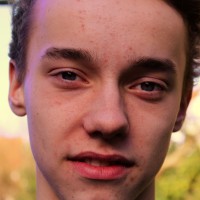 For Victor Hupe, high school student, science had interested him ever since he first started high school. He had to drop the course after his third year, but when the opportunity arose to continue with it as an extracurricular activity, he grabbed it with both hands. What he learned there was more than he could have imagined.
For Victor Hupe, high school student, science had interested him ever since he first started high school. He had to drop the course after his third year, but when the opportunity arose to continue with it as an extracurricular activity, he grabbed it with both hands. What he learned there was more than he could have imagined.
Hupe was born 17 years ago, and is currently in his final year of VWO, pre-university level, at high school. Outside of school his main interest is playing soccer, with friends as well as at a local club. He also likes to travel, draw and play board and card games. After graduation it is Hupe’s intention to enroll at TU Delft, where he plans to study industrial engineering. The opportunity he had to continue practising science as an extracurricular activity at his high school was the main reason for this decision.
“At the end of the third year I had to choose the courses for my final years,” he explained. “A few teachers would get together every once in a while to build things, but often didn’t actually get around to getting together.” An initiative started where the teachers asked several students who might be interested in joining the group to work on a project of their own, amongst which was Hupe. Without hesitation he joined the initiative, which was called FAB class, short for fabrication, based on Maker Education. “It is not a course in the traditional sense, it is outside of regular school hours, but everyone involved is highly motivated,” Hupe said of the initiative.
The open nature of the course is exemplified by the projects he worked on. “I built a wooden bicycle, cups for small children, a Google cardboard,” Hupe recounted. There are few restrictions on what can be made, equipment such as a laser cutter and 3D printer are being made available, and if necessary building materials will be ordered to complete a project. Being offered this kind of freedom has brought Hupe plenty of technical knowledge. But not just that. “Along the way I started to realise I was learning things that could be applied beyond FAB class as well.” A new way to look at the challenges and difficulties one encounters in life, some valuable life lessons. Lessons he is eager to share on the TEDxDelft stage.
Want to know the lessons Hupe learned from having been given the freedom to build his own projects at school? Then buy your tickets now, join us on Friday 15 April and celebrate the universal genius.
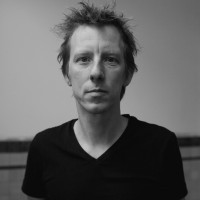 The TEDxDelft stage is one Jasper van Kuijk, Assistant Professor at the Technical University of Delft and comedian, is all too familiar with. “I hosted the very first edition of TEDxDelft,” he says proudly. “And I was more than happy to return back to that stage.”
The TEDxDelft stage is one Jasper van Kuijk, Assistant Professor at the Technical University of Delft and comedian, is all too familiar with. “I hosted the very first edition of TEDxDelft,” he says proudly. “And I was more than happy to return back to that stage.”
Van Kuijk, originally from The Hague, started attending the Delft University of Technology where he studied Industrial Design Engineering. A couple of years after obtaining his Master’s he reenrolled at TU Delft to obtain a PhD in the same field, and continues to work at the university as an Assistant Professor. During his studies he followed a course in theatrics and comedy. From this course came a group with which van Kuijk toured for three years, and went on to win a contest at a comedy festival. After three years of touring the group was dissolved, and Van Kuijk decided he wanted to become a solo artist.
Though van Kuijk was excited to have been invited to be on the TEDxDelft stage, he also knew early on he did not want to do a talk. But what then? “I basically received ‘carte blanche’ from Rob [Speekenbrink, Founder TEDxDelft] and Caryn [’t Hart, Head Curator] when they approached me,” he explains. Quickly they decided on a show van Kuijk had done last year. “It was actually an experiment for me,” he said. It was a show they had performed on only four occasions. Now he is bringing it back for TEDxDelft, only now in front of 1100 people and in English.
“It was hard to decide what I wanted to add to TEDxDelft, but I decided I wanted to push the boundaries of what I had done before,” van Kuijk explains. Though he does not have an overarching theme to his performance, when asked how to characterize his time on the stage it would be as a challenge. “I am active in a lot of different areas,” he clarifies. So when given the opportunity to do whatever you want to, what do you do? “Something surprising,” is van Kuijk’s answer. Though if it were to have a title, van Kuijk knows what it would be, quoting Baz Luhrmann: “Do one thing every day that scares you.”
Are you curious to find out what Jasper van Kuijk’s act will be? Then buy your tickets now, join us on Friday 15 April and come celebrate the universal genius.
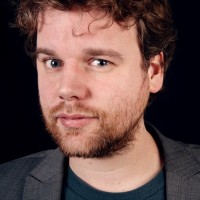 “The literary world can be slow to adapt to changes,” writer Niels ’t Hooft says. “It is one of the last industries which seems to resist technology.” And with the sales of print on the rise, change seems even more unlikely. Which is a pity according to ’t Hooft.
“The literary world can be slow to adapt to changes,” writer Niels ’t Hooft says. “It is one of the last industries which seems to resist technology.” And with the sales of print on the rise, change seems even more unlikely. Which is a pity according to ’t Hooft.
After finishing high school, ’t Hooft decided not to study but to start working instead. He set out to build a website about video games. From this, it was only a relatively small step to becoming a journalist writing about video games. From journalistic writing came fiction writing. His first book was published in 2003 and he has since gone on to write two more novels, as well as several short stories. His affinity for technology, and games, in particular, remained. He found a way to combine his love of writing with that of games by helping with the development of several games through story development and direction, as well as helping build the worlds in which games took place.
“There is a lot of fear, uncertainty and doubt around literature in the current media and culture landscape,” ’t Hooft explains. The sales of print is increasing, but that of e-books is stagnating. The literary world appears hesitant to embrace the possibilities that new technologies such as smartphones could offer. “The last few months have really confirmed the industry’s reticence,” he says. For ’t Hooft, this is a shame. Through his work on video games, he has gained an appreciation for the ways in which technology can be applied to tell a story.
“It could be a new way to present literature. A whole new experience for the reader,” he says. But there are obstacles to consider as well. “You see a lot of people reading on their smartphones on public transport.” It is a device people carry with them all the time, but it is also a device which constantly asks for attention through new messages, phone calls, and a host of other notifications. And finally, there is also the question of whether people really have the time to sit and read? ’t Hooft sees many great opportunities, ways to make fiction truly interactive. “And who better to do it than the writers themselves?”
Are you interested to hear how Niels ‘t Hooft is convinced writers can bring literature definitively into the digital age? Then buy your tickets now, joins us on Friday 15 April and come celebrate the universal genius.
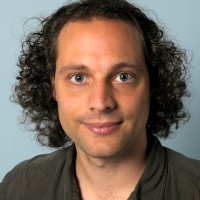 “My aim is to help improve the quality of health care,” says Sebastiaan Breedveld, a researcher at Erasmus University Medical Center. With the continuous development of new technologies in the medical sector, it would be reasonable to assume advances in medical care happen all the time. For Breedveld, however, looking at only the technology is not enough.
“My aim is to help improve the quality of health care,” says Sebastiaan Breedveld, a researcher at Erasmus University Medical Center. With the continuous development of new technologies in the medical sector, it would be reasonable to assume advances in medical care happen all the time. For Breedveld, however, looking at only the technology is not enough.
Breedveld was born and raised in the port city of Rotterdam, where from an early age he realised that both health care and science were two topics that very much interested him. And so he enrolled at the Delft University of Technology, where he studied mathematics and eventually obtained a Master’s degree. At the same time, he continued to find ways to connect with the health care sector. “I was always looking for the intersection between mathematics and medicine,” he explains. After graduating he became a student at Erasmus MC, where he would eventually achieve a Doctorate in Medical Physics.
Eventually, Breedveld would find his area of interest: radiation therapy. “I kind of rolled into this area really, I just happened to get involved in it.” It was here that he would really start to take notice of the effects of the relentless technological development in the medical sector. “There was and still is a lot to do, given the constant stream of changes,” he says. There is a drive to develop new methods of patient treatment, yet at the same time also the need to make the best use of what is available. It is this intersection which has Breedveld’s interest in particular.
From this stems his idea that patients should receive the best treatment that technology allows, as Breedveld feels the current state-of-the-art technology is often underused. Though it is a rather technical topic, Breedveld nevertheless relishes the opportunity to share it on the TEDxDelft stage. Fortunately, he is no stranger to explaining complicated topics to a general audience, having explained the basics of mathematics to children on several occasions. “Depending on the audience the key is to find a different way to visualise what you are saying,” says Breedveld.
Technological advancement is a good thing, given that it provides new possibilities for its users. For Breedveld, the importance lies in making use of it as best as possible to achieve what is best for the patient.
If you want to hear how Sebastiaan Breedveld believes patients can receive the best treatment technically possible, then buy your tickets now and join us on Friday 15 April 2016 and celebrate the universal genius.
During a lecture earlier this year, one of Andy Zaidman’s students stood up in class and asked him a frustrating question: “Why do I need to test my program? If I get a correct result, that means my program works. Why waste time testing?”
That, for Zaidman, is the biggest problem with the mindset to software design today. People do not test their programs beyond a superficial result.
“I get very frustrated when there are bugs in a program,” the TU Delft Software Engineering Associate Professor says. “More and more programs are launched today without being vetted for bugs. Frankly, it doesn’t surprise me. I see how my students approach design. They only want their program to work, to be functional. They are not interesting in ensuring that it’s flawless.”
His talk at TEDxDelft 2015 will address the need to change that very approach to software design. In order to help with that mind shift, Zaidman is creating software that, on the one hand, stimulates software developers to keep on testing, but it also recommends to test parts of the software because of previous weaknesses. “The idea is to stimulate an interest in the program beyond the result and make it fun to keep testing, a bit like playing a game.”
Zaiman’s interest in software started with his fascination for computers as a teenager. “It seemed only logical for me to study computer science. In the course of actually studying the subject, I realized how complex it was. I feel it’s strange that we haven’t found a way to make the process of testing complex programs more interesting.”
As part of his talk, he will explore examples of high profile projects that went wrong due to software bugs. One such example was the Fyra – the high-speed rail service launched between Netherlands and Belgium. “One of the biggest reasons why that project didn’t work was failing software. Sometimes there are errors because people don’t look into all kinds of things that can go wrong and take precaution against them.”
Programmers and cross disciplinary teams are often unaware of the kind of pitfalls that can occur if a program is not well tested. These examples will help create some awareness about what to watch out for. “In the larger picture, I think the talk is also about how we should be critical of our own work. Keep testing it, looking at it from different perspectives and trying to ensure it’s as flawless as possible.”
https://www.youtube.com/watch?v=cFWm8C4FoUI
Change and creativity go hand in hand for Kor van Velzen. An artist, advertiser, songwriter and once-upon-a-time a priest, Van Velzen has worn many caps, and with each new one he discovered a new aspect of himself.
Van Velzen believes that a new perspective can often help make sense of difficult times. “Sometimes, when you feel unhappy in a situation, simply changing the way you look at things can really make a difference. At one point I was a creative director at an ad agency and I found that being responsible was really interfering with my creative process. We often had to give in to clients and go against our ideas. That caused a lot of conflict in me. I finally moved on and now work with smaller clients with an agency in Delft. I feel that I am now better than I have ever been,” he says.
For him, the theme of TEDxDelft 2015 – ‘Let’s make things beta’ –offers up multiple perspectives too. From giving voice to ideas to making things better. A surprise performance during his talk will also play on this theme and echo a sentiment U2 made famous with their song Stuck in a Moment.
Music has always been an integral part of his life. More so now as his son Roel Van Velzen gains recognition internationally as a singer-songwriter. Van Velzen recalls that while his son was always interested in music and all the instruments around the house, it was a game they played that lead to his love of performing. “From when he was about two, we would do recordings together on a tape recorder. We pretended that we were on radio and would talk as though an audience was listening. It was incredible for me to record something with my son, but I wanted to do it in a creative way. We did that for about six years,” he says.
It’s no surprise then that one of his favourite TED talks is one that offers a fresh perspective on a old process – tying shoelaces!
Teddy Moore: How to tie your shoelaces
https://www.youtube.com/watch?v=d9wJ8aKdxas

